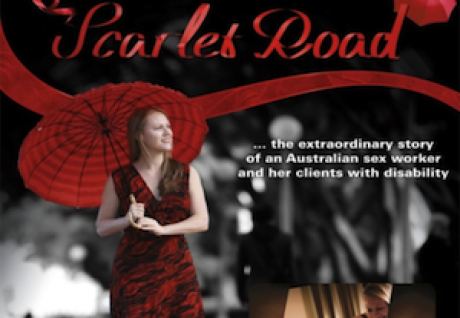Video Blog – ‘Scarlet Road’,
the hidden side of sex work
– trust.org
Posted on June 24, 2012
PART 1
Scarlet road from Thomson Reuters Foundation on Vimeo.
PART 2
Scarlet road – Part 2 from Thomson Reuters Foundation on Vimeo.
This video blog is part of a live reportage from the Sheffield Documentary Festival 2012

By Maria Caspani
SHEFFIELD, England (TrustLaw) – Can sex work ever be a good thing or even do some good?
Meet Rachel Wotton, a witty, outspoken young woman from Sydney, Australia, where she has been working legally as a sex worker for the past 18 years.
It was her choice, and one she is proud of.
“I realised there was quite a lot of diversity within the sex workers community,” Wotton told TrustLaw during an interview in Sheffield, where she and director Catherine Scott are presenting the documentary in which Wotton stars.
“I had a lot of different aims and aspirations. In fact the sex industry allowed me to pursue these aspirations. It allowed me to merge a lot of my passions and desires I wanted to accomplish in life,” she added.
“Scarlet Road”, screened for the first time in Europe on Friday at the Sheffield International Documentary Festival, aims at challenging the mainstream and widespread belief that sex work is a shady, dark, and morally wrong business.
Half of Wotton’s clients are people with disabilities. People like Mark, forced into a wheelchair by cerebral palsy but nonetheless a human being who needs to touch and be touched as much as he needs to eat and breathe.
“I don’t have a girlfriend,” Mark says in the film, “so I can’t share my feelings with just one person. Rachel makes me feel like I have a girlfriend.”
“I treat them as human beings,” Wotton said. “And they all have different needs and desires…it’s just about changing my service delivery slightly.”
Wotton, an advocate for both sex workers and people with disabilities, volunteers for Touching Base, a charity that assists and connects people with disabilities and sex workers.